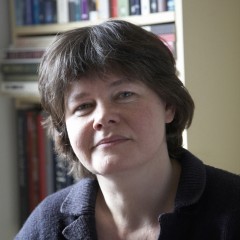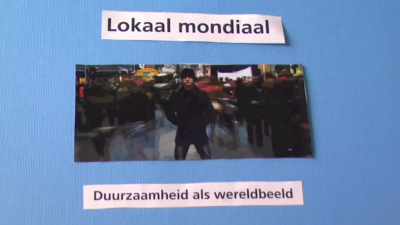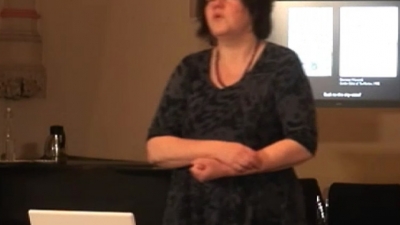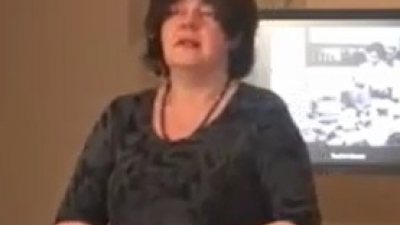
Carolyn Steel MA
ArchitectSteel schrijft regelmatig over voeding, architectuur en stadsontwerp, heeft gepresenteerd op BBC tv, en was een columnist bij Building Design. Ze wordt wereldwijd gevraagd als spreker, en sprak recent bij onder andere TEDGlobal, Planbureau voor de Leefomgeving, National Building Museum (Washington DC, Princeton University (New York), Domus Academy (Milan) en het Designfestival, Melbourne.
Carolyn Steel is gastdocent bij de universiteiten van Cambridge en Wageningen, en heeft gedoceerd aan Cambridge en London Metropolitan University en de London School of Economics voor een aantal jaren.
Haar boek Hungry City: How Food Shapes Our Livesbeschrijft hoe voeding de sleutel is tot de 'urban paradox' in de kern van de beschaving. Met 'urban paradox' bedoelt ze dat ondanks dat de meeste van ons in steden leven, we grotendeels nog op het land ronddwalen, vertrouwend op de natuur om ons te voeden, net als onze voorouders. De paradox is dat we meer en meer groeperen in het belang van de samenleving, maar tegelijkertijd steeds verder van onze bestaansmiddelen af komen te staan.
---
Carolyn Steel is a leading thinker on food and cities and has worked in that field since 1989. Carolyn writes regularly on food, architecture and urban design, has presented on BBC TV and was a columnist for Building Design. She is in demand worldwide as a public speaker, with recent appearances at TEDGlobal, The Netherlands Environment Assessment Agency, The National Building Museum (Washington DC), Princeton University (New York), Domus Academy (Milan), and the Melbourne Design Festival.
Carolyn Steel is a visiting lecturer at Cambridge and Wageningen University, and has taught at Cambridge and London Metropolitan Universities and the London School of Economics for a number of years.
Her book Hungry City: How Food Shapes Our Livesdescribes how food is key to the 'urban paradox' at the core of civilization. With 'urban paradox' she means that although most of us live in cities, in a deeper sense we really dwell on the land, relying as much on the natural world to feed us as our ancient ancestors did. The 'paradox' comes from the fact that the more we cluster together for society's sake, the further removed we get from our sources of sustenance.
Her concept 'sitopia' (foodplace, from Greek: sitos means food, topos means place) is gaining widespread recognition as a tool with which to address the dilemmas of 21st century dwelling.








